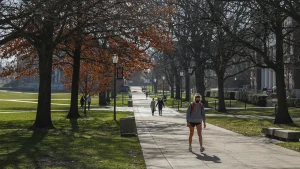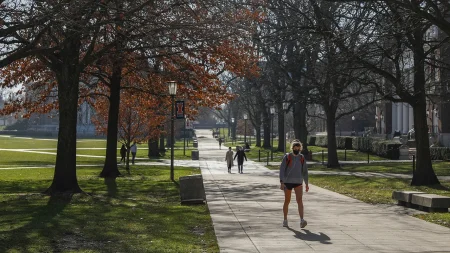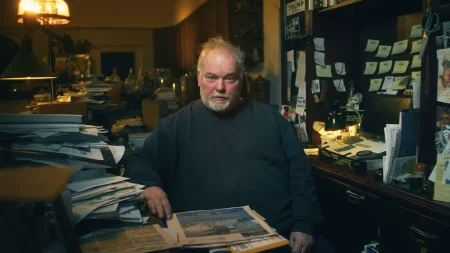World leaders, top thinkers, and influential figures from across industries converged in Davos, Switzerland, for the much-anticipated annual meeting of the World Economic Forum (WEF). The picturesque Alpine town set the stage for intense discussions, panels, and private conversations, as the world’s elite grappled with the pressing issues shaping the global landscape. Yet, unlike the usual energetic optimism that typically underscores these gatherings, this year had a slightly different mood—a noticeable undercurrent of anxiety. Jeanna Smialek, a reporter for The New York Times, captured this sentiment perfectly, remarking on the unease that seemed to linger over the event like a winter fog. Much of this apprehension stemmed from one significant question hanging in the air: How would the new Trump administration impact Europe and the world at large?
To paint the picture, we must rewind to the context of the moment. Donald Trump had just taken office as the President of the United States. His election brought a wave of uncertainty, not just domestically but internationally, as his administration’s policy positions signaled a potential shift in global dynamics. All eyes at Davos were fixated on trying to decipher America’s new trajectory under his leadership. For decades, the U.S. played a key role in influencing international cooperation, trade policies, and alliances. However, Trump’s "America First" approach hinted at a more inward-looking strategy, leaving many world leaders and economists to wonder: Would this mark the retreat of the U.S. from the global stage?
This central concern naturally triggered a domino effect of questions. Would transatlantic relations withstand potential strains? What did this mean for free trade, which had been a cornerstone of globalization conversations at WEF? And would Europe—already dealing with challenges like Brexit and rising populist movements—find itself in an even more precarious position as the U.S. potentially redefined its priorities? These questions weighed heavily on attendees, coloring discussions with a sense of urgency.
When we talk about Davos, we’re really talking about a melting pot of perspectives. Government officials rub elbows with CEOs of multinational corporations, while academics, philanthropists, and activists squeeze into panel discussions alongside journalists and innovators. It’s this confluence of voices that makes Davos both dynamic and complex. And this year, discussions were steeped in the realization that the geopolitical landscape was shifting faster than expected. Trump’s victory, often framed as a nod toward protectionism, had implications about globalization itself. For years, WEF had championed the interconnected world—a place where trade and shared policy solutions bring nations closer together. Now, that idea seemed more fragile than ever.
For Europe, the stakes felt particularly high. The European Union had been grappling with its own whirlwind of crises—from the aftermath of the Brexit referendum to economic disparities among member nations and the growing influence of far-right political parties. Trump’s admiration for Brexit and his vocal criticisms of NATO left European leaders questioning America’s commitment to the post-World War II alliances that had long been the bedrock of stability in the region.
In candid conversations behind the scenes, many at Davos seemed to reflect on Trump’s ascendancy as a "wake-up call" for the broader global elite. His victory was a manifestation of the growing discontent among voters who felt left behind by globalization—those who saw themselves on the losing end of rapid technological innovation, free trade, and increased automation. These voters’ frustrations echoed well beyond America’s borders, aligning with the populist momentum sweeping parts of Europe and other regions. It was clear that the economic playbook of the past few decades needed rethinking.
The event also shed light on the tension between the promise of globalization and its unintended consequences. On one hand, advocates pointed to the undeniable benefits of an interconnected world: poverty reduction, innovation, and access to markets. On the other, critics highlighted widening income inequality, job displacement, and eroding trust in institutions as serious downsides. For the leaders in Davos, the question wasn’t just whether globalization was here to stay but how it could be recalibrated to work for more people—especially those who felt excluded from its rewards.
Despite the unease, Davos maintained its reputation as a space for big-picture thinking. Whether it was tech leaders envisioning the future of artificial intelligence or climate activists urging immediate action in the face of environmental crises, there was no shortage of bold ideas. But amidst these conversations, many couldn’t help but gaze toward Washington, waiting for more clarity on what "America First" really meant in practice.
The inauguration of a new U.S. president inevitably casts a long shadow over global events, and this year’s gathering was no exception. What stood out, though, was the collective sense that the world was at a crossroads. The optimism that globalization could achieve ever-increasing prosperity was now tempered by the realization that its spoils had been unevenly distributed. The challenge before the leaders in Davos—and indeed, the world—was how to make the next chapter of globalization more inclusive.
One of the takeaways from Jeanna Smialek’s reporting, and from the broader discussion in Davos, was the recognition that navigating this new era wouldn’t be straightforward. It would require rethinking entrenched approaches, addressing systemic inequalities, and perhaps even redefining what success looks like on the world stage. There was no doubt that change was coming. The real question was whether the world’s leaders, thinkers, and decision-makers were ready to meet it head-on.
As the summit concluded and attendees descended from the snowy peaks of Davos with fresh perspectives and renewed urgency, the future remained uncertain. But one thing was clear: the new Trump administration had jolted the global conversation, challenging long-held assumptions and leaving the world searching for a new balance. The work to manage that balance—between cooperation and competition, open markets and protectionism, optimism and realism—was only just beginning. And Davos, true to form, had served as both a reflection of the moment and a reminder of the complexities still ahead.











